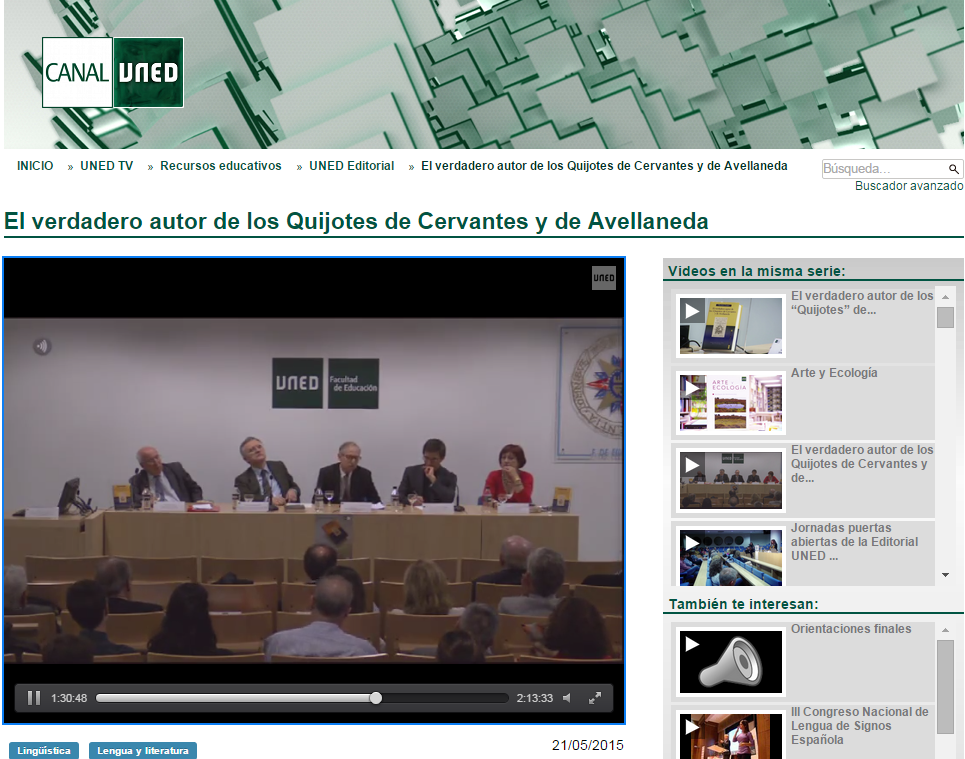
The Group of Medieval and Renaissance Studies together with the publishing houses of UNED and BAC presented the book El verdadero autor de los "Quijotes" de Cervantes y de Avellaneda ('The true author of the 'Quijotes' of Cervantes and Avellaneda'), by Francisco Calero Calero. The book is the tenth volume in the Collectio scriptorum mediaevalium et renascentium series. The event took place on 20 May, 2015 in the Salón de Grados of the Faculty of Education.
The participating in the act were: Javier Vergara Ciordia, Director of the Group of Medieval and Renaissance Studies, Full professor of History of Education (UNED); Herminia Calero Egido, Director of the UNED Publishing house; Carlos Granados García, Director of the Biblioteca de Autores Cristianos ('Library of Christian Authors'); Francisco Calero Calero, author of the book and Professor emeritus of Latin Philology (UNED); Marco Antonio Coronel Ramos, Full professor of Latin Philology (University of Valencia) and José Polo Polo, Professor emeritus of Linguistics (Universidad Autónoma de Madrid).
The book has two main objectives. First, it sets out to prove that the supreme work of universal literature that is the Quijote could not have been written by the 'lay genius' Miguel de Cervantes Saavedra, whose life is fairly well documented. Professor Calero's premise in making this affirmation is that the book, in addition to evincing a monumental imagination, attests to an extraordinary degree of erudition as well. The Quijote brings together a trove of knowledge accumulated by Greek, Hebrew, Latin, Medieval and Renaissance writers. To be able to read such authors, Cervantes would have had to know these languages; but and in fact, he did not. Cervantes' case is not so different from that of Shakespeare, whose authorship of numerous works has been brought into question by British scholars for similar reasons.
The second aim of the book is to show that the true author of the Quijote is Juan Luis Vives, Spain's first and most universal humanist, who would have had the mixture of culture and literary genius necessary to create such a masterpiece. Professor Calero makes a comparison of more than four hundred texts from the Quijote with Latin works of Vives, revealing a similar, identifiable thought process. The author makes the case that there is more than enough evidence to attribute the true authorship of the Quijote to Luis Vives and not Miguel de Cervantes.
The recording of the book presentation (broadcast on Canal UNED on 21/05/2015) can be viewed at https://canal.uned.es/mmobj/index/id/27184.